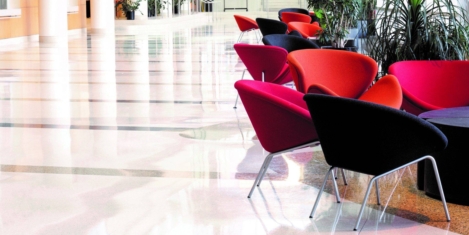May 5, 2017
IFMA and RICS unveil combined qualifications platform 0
 The collaboration between IFMA and the Royal Institution of Chartered Surveyors (RICS) is, for the first time, offering a combined suite of credentials and professional qualifications for facilities management in a single, online academy platform at www.fm.training. IFMA and RICS first launched the platform in December 2016 as an initial step toward ‘leveraging the combined authority of two of the world’s premier built environment professional organisations for the support of FM education and career advancement’. IFMA centralised its professional credential training — the foundational Facility Management Professional, the targeted Sustainability Facility Professional and the Facility Management Learning System, which supports learning for the Certified Facility Manager certification — on the academy in early April. Now, RICS has added the final critical piece of the IFMA-RICS suite of credentials and professional qualifications to the platform: the internationally recognised AssocRICS and MRICS professional designations.
The collaboration between IFMA and the Royal Institution of Chartered Surveyors (RICS) is, for the first time, offering a combined suite of credentials and professional qualifications for facilities management in a single, online academy platform at www.fm.training. IFMA and RICS first launched the platform in December 2016 as an initial step toward ‘leveraging the combined authority of two of the world’s premier built environment professional organisations for the support of FM education and career advancement’. IFMA centralised its professional credential training — the foundational Facility Management Professional, the targeted Sustainability Facility Professional and the Facility Management Learning System, which supports learning for the Certified Facility Manager certification — on the academy in early April. Now, RICS has added the final critical piece of the IFMA-RICS suite of credentials and professional qualifications to the platform: the internationally recognised AssocRICS and MRICS professional designations.






 New guidance to help facilities managers manage the transition to agile working within their organisation has just been published by the British Institute of Facilities Management (BIFM). The Agile Working Change Management Guidance Note is aimed at FMs working at a senior and/or operational level and covers the benefits of agile working and how to successfully plan and implement an integrated approach to deliver sustainable change in working behaviour. Agile working describes a range of work settings that allow people and organisations to make new choices about when, where and how they work. It is underpinned by mobile technology and applies to people working both in and away from the traditional office, such as at home, on the road or remotely in other locations. BIFM’s research and information manager Peter Brogan said: “As an Institute, we recognise the importance of the workplace agenda for FMs and this newly commissioned Guidance Note aims to address the current lack of knowledge around some of the emerging workplace practices.”
New guidance to help facilities managers manage the transition to agile working within their organisation has just been published by the British Institute of Facilities Management (BIFM). The Agile Working Change Management Guidance Note is aimed at FMs working at a senior and/or operational level and covers the benefits of agile working and how to successfully plan and implement an integrated approach to deliver sustainable change in working behaviour. Agile working describes a range of work settings that allow people and organisations to make new choices about when, where and how they work. It is underpinned by mobile technology and applies to people working both in and away from the traditional office, such as at home, on the road or remotely in other locations. BIFM’s research and information manager Peter Brogan said: “As an Institute, we recognise the importance of the workplace agenda for FMs and this newly commissioned Guidance Note aims to address the current lack of knowledge around some of the emerging workplace practices.”




 A new guide for facilities management professionals working with clients on BIM construction projects has been issued by the BIFM (British Institute of Facilities Management). Employer’s Information Requirements is a practical 47-page document to support clients using BIM (Building Information Modelling) to advise clients on how to specify their exact requirements for the design and construction phase of a built asset through to its full life-time operation. The purpose of the EIR is to support both FM professionals and clients by providing a template which can be edited and amended by the client or facilities manager to meet individual requirements for the project. Its guidance follows the publication of BIFM’s Operational Readiness Guide For Facilities Managers published in April 2016. Since April 2016, construction projects commissioned by Central Government have been required to use BIM for their procurement and delivery.
A new guide for facilities management professionals working with clients on BIM construction projects has been issued by the BIFM (British Institute of Facilities Management). Employer’s Information Requirements is a practical 47-page document to support clients using BIM (Building Information Modelling) to advise clients on how to specify their exact requirements for the design and construction phase of a built asset through to its full life-time operation. The purpose of the EIR is to support both FM professionals and clients by providing a template which can be edited and amended by the client or facilities manager to meet individual requirements for the project. Its guidance follows the publication of BIFM’s Operational Readiness Guide For Facilities Managers published in April 2016. Since April 2016, construction projects commissioned by Central Government have been required to use BIM for their procurement and delivery.





















December 23, 2016
Presenteeism doesn’t aid productivity, so employers should set workers free 0
by Mark Eltringham • Comment, Flexible working
More →